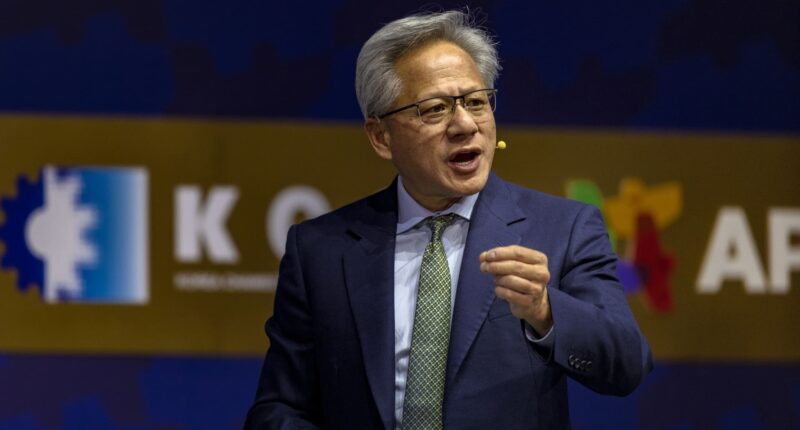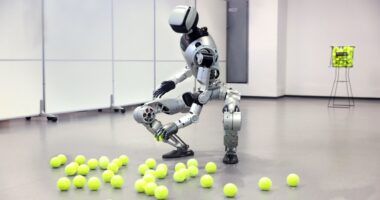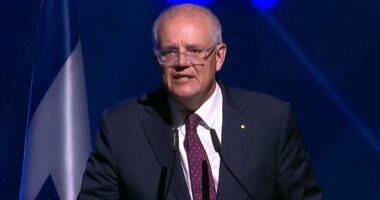Share this @internewscast.com
At the APEC CEO summit held on October 31, 2025, in Gyeongju, South Korea, Nvidia’s CEO, Jensen Huang, addressed an audience of business leaders.
Ezra Acayan | Getty Images News | Getty Images
During his speech, Huang emphasized that artificial intelligence has entered a “virtuous cycle,” hinting at ongoing and robust growth within the industry.
At the Asia-Pacific Economic Cooperation CEO Summit in South Korea, Huang highlighted how advancements in AI models are spurring further investment, which subsequently leads to even greater improvements in the technology.
“We’ve now established what is known as the virtuous cycle,” Huang explained, opting for a formal suit over his iconic black leather jacket for the event.
“As AI improves, usage increases. Increased usage generates profits, fueling the development of more facilities, which in turn leads to even better AI. This cycle is now in motion and explains why global capital expenditures are accelerating so rapidly,” he elaborated.
His comments come as Big Tech is spending billions to build out AI-related infrastructure and serve its end users.
This year was expected to be a big one for AI spending with Meta, Amazon, Alphabet and Microsoft announcing plans to invest more than $300 billion combined on AI technologies and data center build-outs. This looks set to continue into 2026 as the tech giants plan to boost capital expenditures again, per their respective earnings, reported this week.
Dan Ives, Wedbush Securities global head of technology research, described Nvidia as “the foundation of the AI Revolution” in comments to CNBC after Huang’s remarks onstage.

He described the AI virtuous cycle as: “The more demand, the more building of AI building blocks. And demand creates more demand and capex.”
Huang stressed that profitability was at the heart of the current boom in AI capital investment.
“When something becomes profitable, you want to manufacture more of it, just like when you’re manufacturing chips and wafers and DRAM, if the manufacturing of those chips were profitable, you want to build more factories to create more chips,” he added.
A new era of computing
It is the beginning of a new era of computing, as, with AI, “every single layer of the computing stack is being fundamentally changed,” Huang said onstage.
We are at the beginning of a 10-year build-out of this new era, he added.
“AI runs on GPUs [graphics processing units], whereas hand-coded software runs on CPUs [central processing units]. This entire software stack, from the … the needs of energy, chips, the infrastructure, all of the software associated with the systems, the AI models and the applications on top, every single layer of computing has been fundamentally changed,” Huang said.
“Just think: the computer industry has been largely the same for 60 years, and now, with AI and accelerated computing, every single layer of the computing stack is being changed. All of the computers we’ve created in the past, a trillion dollars, maybe more, of computers needs to now be transitioned, shifted to the new computing platform,” he added.

Nvidia, which became the first company to surpass $5 trillion in market value earlier this week, announced a partnership with Korean semiconductor giant Samsung earlier Friday. Samsung plans to buy and deploy a cluster of 50,000 Nvidia GPUs to improve its chip manufacturing for mobile devices and robots.
Huang painted a picture of the future in which artificial intelligence is able to “work,” rather than just be used as a tool. Highlighting the rise of fully automated manufacturing factories, the CEO expects AI to reshape $100 trillion worth of industries around the world.
— CNBC’s Kif Leswing contributed to this report.









